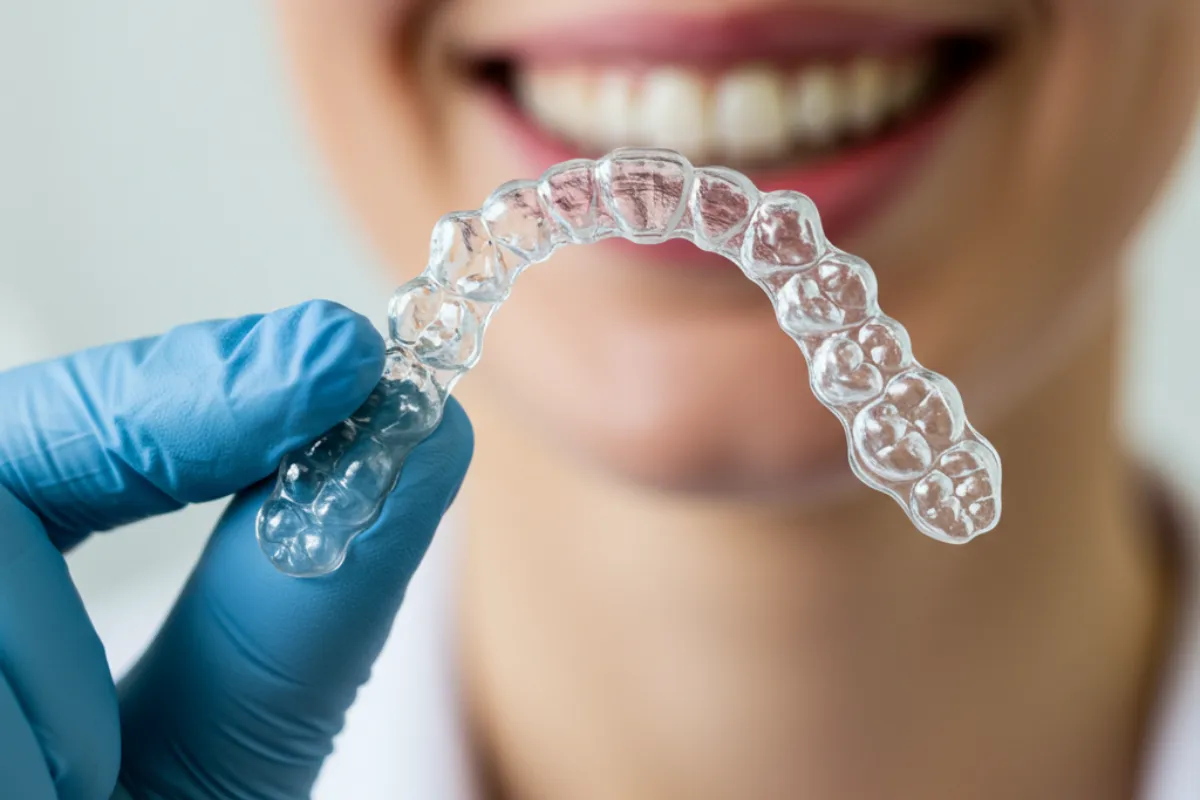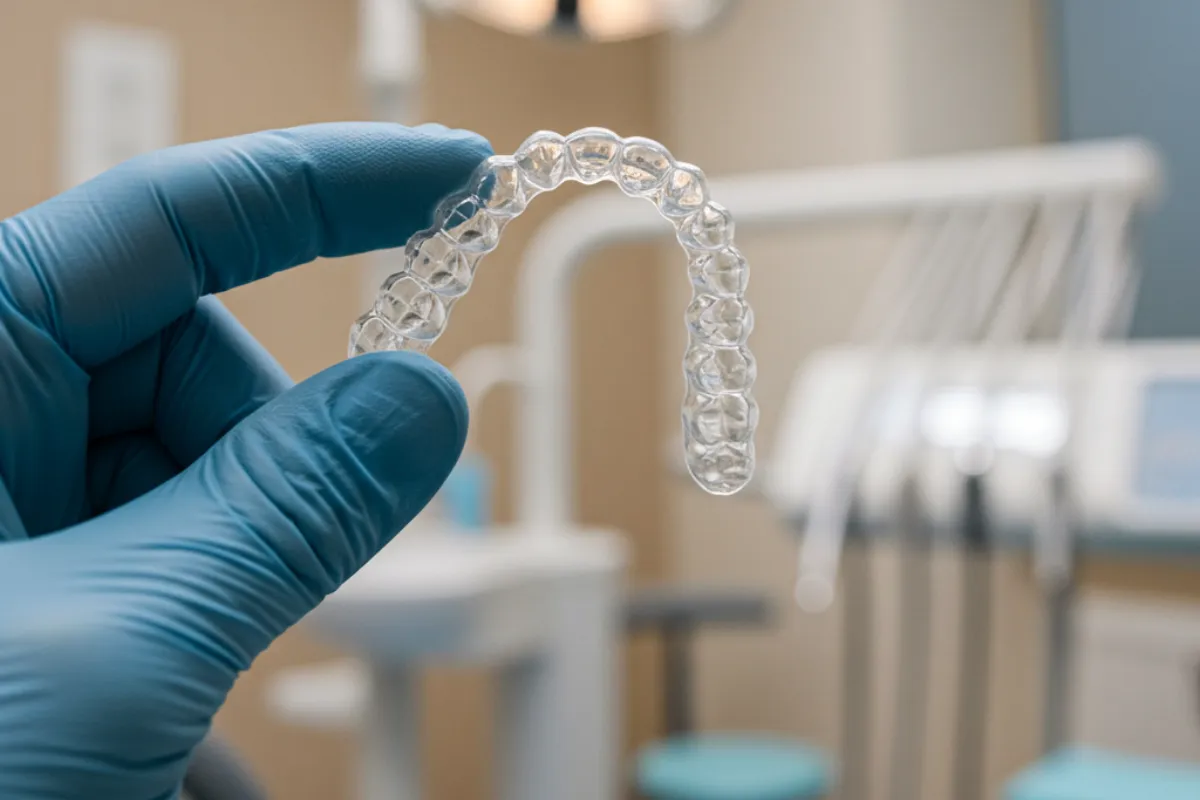Brushing Basics: A Guide to Lifelong Dental Health at Home

Building Healthy Smiles Starts at Home: Why Brushing Habits Matter
Healthy smiles are built one day at a time, and the foundation starts at home. Establishing good brushing habits early on is one of the most effective ways to prevent dental issues before they start. For families in North Vancouver, daily brushing isn’t just about keeping teeth clean—it’s about setting up routines that can last a lifetime.
Children are especially vulnerable to cavities and gum disease, but with consistent brushing, these risks can be significantly reduced. Brushing twice a day removes harmful plaque that can lead to tooth decay, gum problems, and even the need for restorative dentistry or more advanced procedures like dental implants and oral surgery later in life.
Parents and caregivers play a crucial role in modeling and encouraging these habits. By making oral hygiene a non-negotiable part of the daily routine, families can ensure that everyone—kids, teens, and adults—enjoys the benefits of strong, healthy teeth. Good habits established early on aren’t just about today’s smiles; they set the stage for ongoing dental health, reducing the chance of future complications and the need for extensive treatments.
Remember, brushing is just the beginning. Combined with regular check-ups, preventive care, and guidance from dental professionals, a simple daily routine can lead to a lifetime of confident, healthy smiles.
Transforming Brushing Time into Playtime: Creative Ideas for Kids and Teens
Turning brushing time into a playful experience can make all the difference, especially for kids and teens who might see it as a chore. One of the simplest ways to spark enthusiasm is to allow children to choose their own toothbrushes—whether it’s a favorite color, character, or fun design, having ownership can make brushing something to look forward to. The same goes for toothpaste; picking a preferred flavor (as long as it’s dentist-approved) helps make the process enjoyable.
Music is another powerful motivator. Play a two-minute song or use a brushing app with interactive features to keep kids engaged and ensure they’re brushing for the recommended time. There are many apps available that turn brushing into a digital adventure, complete with rewards and reminders.
For families with younger children, brushing can become a game—imagine “chasing away sugar bugs” or embarking on a superhero mission to protect their teeth. Sticker charts or other simple reward systems work wonders in motivating children. Each successful brushing session earns a sticker, and after reaching a goal, they can enjoy a non-sugary treat or a special privilege.
Teens might need a different approach. Emphasize the connection between good oral hygiene and the confidence that comes with a bright, healthy smile. Encourage them to set personal goals, use apps that track progress, or even partner with siblings for friendly competitions.
By weaving creativity and fun into daily routines, families can transform brushing from a struggle into a highlight—building habits that last as children grow.
Family Bonding: The Benefits of Brushing Together
Brushing teeth doesn’t have to be a solitary activity—it can become a cherished family ritual. When families brush together, not only do they reinforce routines, but they also create opportunities for bonding and support. Children are more likely to adopt good habits when they see their parents and siblings actively participating.
Brushing as a group allows adults to model proper technique, ensuring everyone is cleaning their teeth effectively. This hands-on guidance is especially valuable for younger children, who may still be developing the dexterity needed for thorough brushing. Adults can demonstrate how to reach every surface and make brushing fun by using playful language or songs.
Shared brushing time can also help ease dental anxiety, particularly for children or family members with special needs. The presence of loved ones offers comfort and reassurance, making oral hygiene feel safe and routine rather than intimidating.
Turning mornings and evenings into moments of connection transforms what could be a mundane task into meaningful quality time. It’s a chance to share stories, laugh, and support each other’s health goals. Over time, this collective commitment to dental care fosters a sense of responsibility—not just for one’s own health, but for the well-being of the entire family.
By making brushing a family affair, you’re not just caring for teeth—you’re strengthening relationships and building a supportive environment where healthy habits can thrive.
Tracking Progress and Celebrating Milestones in Dental Care
Recognizing and celebrating progress is key to maintaining enthusiasm for dental care, especially for children. Dental milestones—like losing the first baby tooth, the arrival of permanent molars, or getting braces—are important markers in a child’s oral health journey. Taking the time to acknowledge these events helps children see dental care as a positive, ongoing adventure.
One effective way to track progress is by using brushing charts or digital apps that allow kids to record their efforts. Visual rewards, like earning stickers for each successful brushing session, provide a tangible sense of achievement and help establish consistency in routines. For tech-savvy families, brushing apps can offer reminders, track streaks, and even provide virtual rewards.
As children grow, it’s important to introduce new aspects of oral care. Celebrate when your child is ready to start flossing independently or try mouthwash for the first time. These moments are opportunities to reinforce the importance of comprehensive dental care and recognize your child’s growing independence.
Small celebrations—whether it’s a family high-five, a special story at bedtime, or a fun outing—go a long way in keeping motivation high. By making oral health milestones something to look forward to, families can nurture a lifelong commitment to dental care.
Encouragement and recognition don’t have to stop with children; teens and adults benefit from celebrating progress, too. Whether it’s sticking to a new routine, completing a course of orthodontic treatment, or maintaining cavity-free check-ups, every achievement is worth acknowledging.
When to Seek Professional Guidance: Signs Your Child Needs a Pediatric Dentist
Even with the best routines and positive reinforcement, there may be times when additional help is needed. Knowing when to seek professional guidance is an essential part of caring for your child’s dental health. If you notice persistent challenges—like ongoing resistance to brushing, complaints of tooth sensitivity, or visible changes in your child’s bite or tooth alignment—it’s a good idea to consult a pediatric dentist.
Early intervention is key in addressing dental issues before they become more serious. Pediatric dentists are trained to work with children of all ages, including those with unique needs or heightened anxiety. They can offer tailored strategies to make brushing easier, address concerns such as cavities or gum inflammation, and monitor the development of your child’s teeth and jaws.
Sometimes, specialized care may be necessary. If your child requires orthodontic evaluation, endodontic treatment, or even minor oral surgery, a dental professional can guide you through the process and coordinate the right care. Early referrals and preventive visits can help manage problems before they impact your child’s comfort, self-esteem, or overall oral health.
Regular dental check-ups are a cornerstone of preventive care, allowing professionals to spot issues early, provide professional cleanings, and offer advice tailored to your family’s needs. For families in North Vancouver, establishing a relationship with a trusted dentist ensures you have expert support every step of the way.
By staying attentive to your child’s needs and seeking guidance when necessary, you set the stage for a lifetime of healthy, confident smiles.





